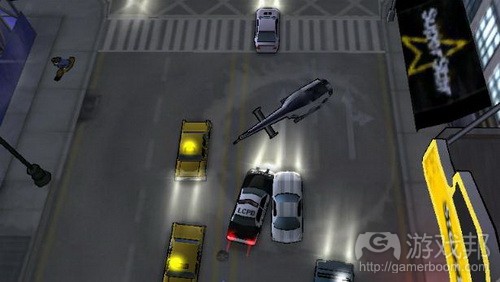Gowland称游戏价值由用户而非行业决定
作者:Nathan Brown
前Rockstar设计师称游戏价值不是由行业决定。
Anthony Gowland(游戏邦注:前Rockstar高级设计师,曾参与《侠盗车手:唐人街战争》和《荒野大镖客》的制作)认为任天堂等公司不顾低成本可下载游戏的日渐风靡而坚持将作品售价维持在当前水平是错误之举,电子游戏的最终价值是由用户而非行业决定。
Gowland早前离开任职6年多的Rockstar,创建自己的工作室Mainly About Games。新工作室侧重手机和网页游戏,这个出发点可以理解,但会令那些致力截然不同内容(主要指全价盒装髙预算作品)的开发者有些不解。
Gowland日前在采访中表达其对任天堂今年2月在旧金山游戏开发者大会上反复否定低成本手机和社交游戏所持态度。在任天堂的主题演讲中,公司总裁岩田聪称:“我们必须关注一个问题:是否应优先维护游戏价值?我们所创造的内容具有价值,我们应该保护其价值。”但Gowland觉得这不是岩田聪能够决定的。
Gowland表示,“我觉得游戏价值不是由开发者决定。我认为用户会回过头告诉你:‘是的,这物有所值’或‘不,这不值这个价’。不同作品在不同人心中价值不同。”
这种思考方式可以延伸至另一行业焦点:二手游戏。英国最大专业零售商Game Group日益专注二手软件的销售(游戏邦注:这约占公司去年总营收的1/4),很多业内人士觉得二手内容对其业务构成很大威胁。而Gowland依然认为这主要取决于消费者的价值认可。
他表示,“很多游戏开发者对此颇为沮丧,我们能够理解其中原因。但我觉得开发者无需因此感到沮丧不安:若你以40英镑出售某游戏,5天后用户觉得他们已从中获得或无法从中获得40英镑的价值,他们是不是该转售游戏?”
“游戏也许会‘恩将仇报’,但若它们满足用户期望,就应允许用户转售内容。作为开发者,我们需关注作品是否提供用户所期望的服务。”(本文为游戏邦/gamerboom.com编译,如需转载请联系:游戏邦)
Gowland: consumers decide the value of games
By Nathan Brown
Ex-Rockstar designer says it’s not up to the industry to tell consumers how much a game is worth.
Anthony Gowland, a former senior designer at Rockstar who worked on Grand Theft Auto: Chinatown Wars and Red Dead Redemption, believes that attempts by the likes of Nintendo to keep the price of games at their current level despite the continuing rise in popularity of low-cost, downloadable games is misguided, and that the ultimate value of videogames is decided by consumers, not the industry itself.
Gowland recently left Rockstar after more than six years, and has since set up his own studio, Mainly About Games. With his new venture’s focus on mobile and web games, his stance is perhaps understandable, but nonetheless it will give those at the opposite end of the industry – those who rely on sales of full-price, boxed, big-budget games – pause for thought.
In an interview, Gowland explains his take on Nintendo’s repeated dismissal of low-cost mobile and social games, which began in February at the Game Developers Conference in San Francisco. There, during his keynote address, company president Satoru Iwata said: “We must focus on a single question: is maintaining the high value of games a priority or not? What we produce has value, and we should protect that value.” Gowland, however, believes that decision is not Iwata’s to make.
“I would say it’s not necessarily up to us as game makers to tell people how much a game is worth in that regard,” he tells us. “I think your customers will turn around and tell you: ‘Yes, this is worth this amount,’ or: ‘No, this is absolutely not worth this amount’. The same game might be worth different amounts to different people.”
That thinking extends to another common industry concern: pre-owned games. With the UK’s largest specialist retailer, Game Group, increasingly dependent on sales of second-hand software – accounting for almost a quarter of its turnover last year – many in the industry believe pre-owned poses a very real threat to their business. Once again, Gowland believes much of that comes down to the consumer perception of value.
“A lot of game developers get very upset about it, and I can understand where they’re coming from,” he says. “But I find it less easy to be upset about it: I think if you sell a game to someone for £40, and five days later they’ve decided they’ve had, or aren’t going to get, their £40 from it, then why shouldn’t they be able to sell it back on?
“Game’s possibly biting the hand that feeds it, but if they’re giving customers value that they want, they’ve every right to let them sell [games] back on…We, as game developers, have just got to look at it in terms of them providing a service that people want.”
Our full interview with Gowland – in which he explains the thinking behind his decision to leave one of the most successful developers in the world, move away from triple-A development to “lunchbreak” gaming, and more besides – will be published this afternoon.(Source:next-gen)








































 闽公网安备35020302001549号
闽公网安备35020302001549号